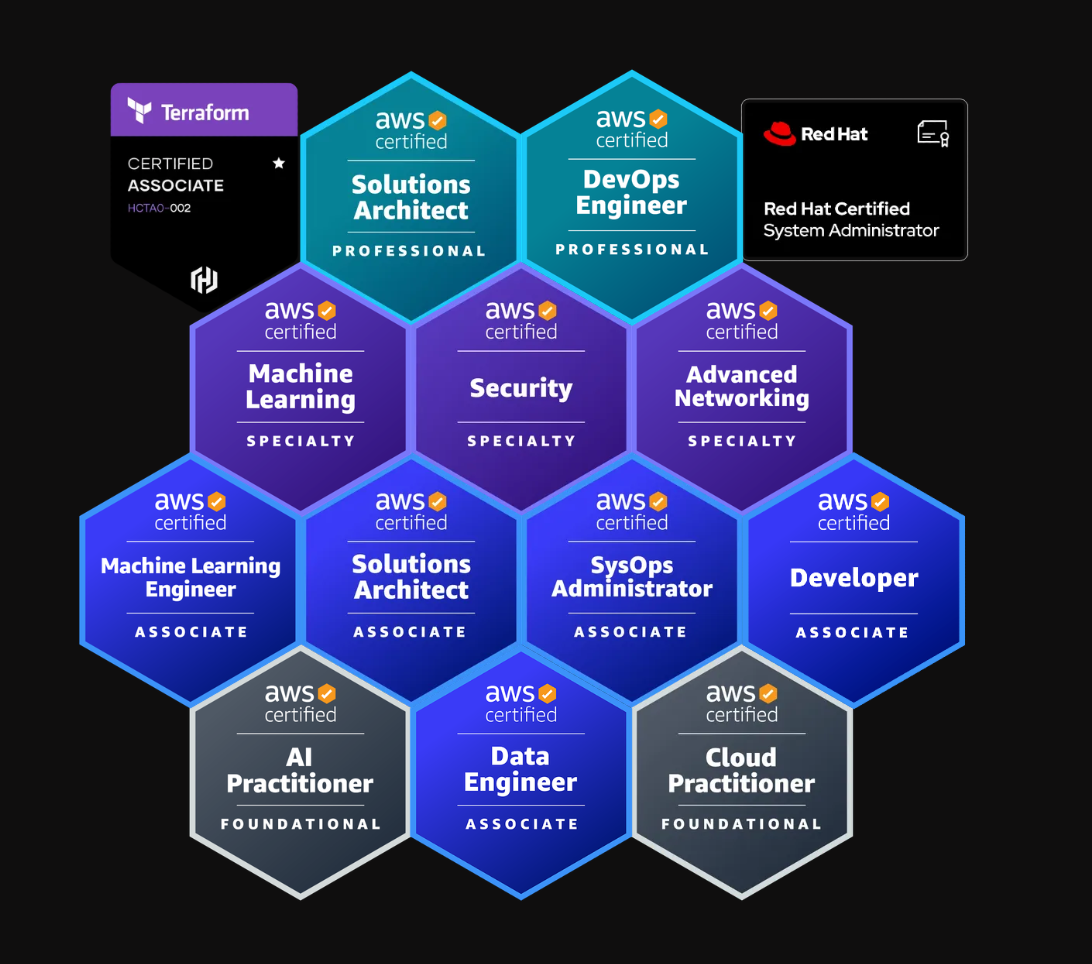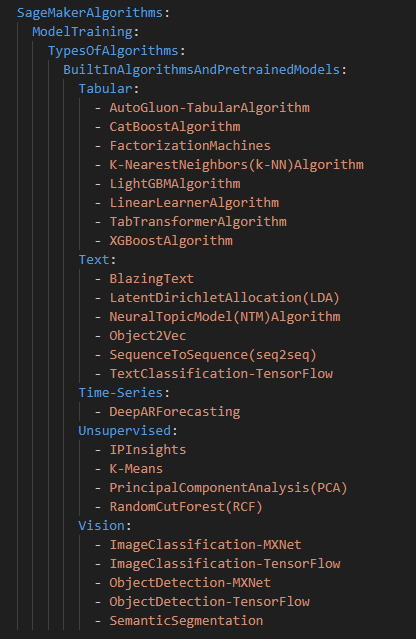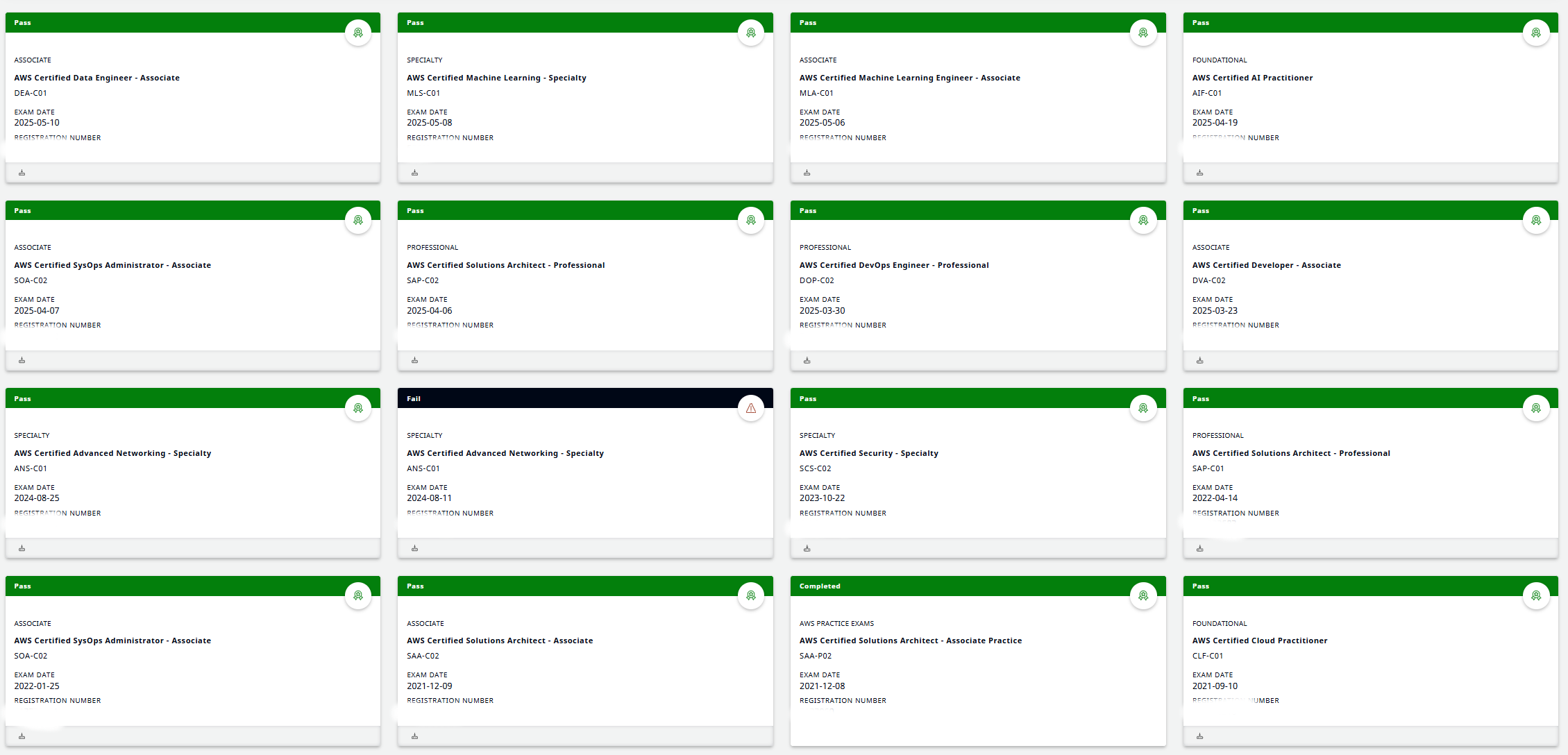Why I Went for All 12
I didn't initially set out to get all 12 or ever think I'd get this far. It happened little by little, cert by cert. I initially tried really hard to get the architect Pro. After that I studied much more casually mainly picking up some adjacent certs and specialties for the next 2 years or so. I had been casually studying on and off for the DevOps Pro cert for a couple of months. I took that and passed and then I renewed my architect pro as well. Thankfully I did not have to study super hard for the two Pros, having worked on and studied AWS pretty regularly for 3+ years at this point.
After the 8 certs I had plenty of exposure to were out of the way I moved onto the ML ones. These were all brand new content to me. The world of AI/ML was super interesting so it ended up being a fun way to finish everything out. Seeing some of the people on LinkedIn and being amazed, especially the multi-cloud cert guys with 50+ certs like Yujun Liang or Yongkang HE definitely inspired and excited me. Another reason is it was just generally enjoyable. The studying portion is relaxing and engaging and always feels like I'm filling in pieces of knowledge I was missing. The test taking part is incredibly stressful but rewarding.

Random Questionable Advice
- Notes are to commit things to memory. The amount of times I've actually gone back to my notes to review something is rare. I realized the notes I take are fairly unintelligible.
- Sometimes I will write and rewrite certain topics from memory, sometimes you think you know something until you're staring at a blank screen and have to explain it or type it out.
- AWS Docs are great. They are very easy to understand and often times the best resource available. They also help give you a hierarchical view of topics that some courses do not.
- YAML or vscode in general is great for note taking. No time wasted with formatting and red/green squigglies and again establish some hierarchical structure to the information.
- IAC can be tremendously helpful to spin up simple reusable lab environments. When you're studying over the course of years you will come back to these documents time and time again.
- If you know you are going to take the Pro exam anyway just take the course for that instead of the associate. It will overprepare you for the associate and save you time in the longrun.
- You will have one set of more concentrated notes, have to purchase less courses, and spend less time watching/sorting through redundant videos.
- Suggested progression/Skip Path:
- Architect Associate → Architect Pro
- SysOps + Developer → DevOps Pro
- ML Associate → ML Specialty
Stats on My Journey
8 certs in 5 weeks, including ML certs (which were new to me). That's about 1.6 certs/week not counting auto-renews.
I'm going to pull up total line count of all my combined notes, it is most likely in the tens of thousands
- March 23 — Developer - Associate
- March 30 — DevOps Engineer - Professional
- April 6 — Architect - Professional (renew)
- April 7 — SysOps Administrator - Associate (renew)
- April 19 — AI Practitioner
- May 6 — ML Engineer - Associate
- May 8 — ML Specialty
- May 10 — Data Engineer - Associate
Machine Learning Specialty
- This was one of the hardest exams. It was 50% AWS, 50% pure ML concepts (like hyperparameter tuning, overfitting/underfitting, precision/recall). The AWS services it covered were 90% SageMaker, with very little integration with other services — unlike Architect Pro, which ties together 5-6 services in one question routinely.
- Work out each block of the confusion matrix before you start filling out recall/precision formula. If it is a 2x2 grid each combo will get one square.
- Big operational efficiency piece was that the AWS built-in ML services like Rekog, Polly, Translate are always easier than the SageMaker built-in algos.
- Learn all the custom SageMaker algorithms in and out. Whether they're unsupervised, supervised. What types of use cases they are best for, etc.
- This is a YAML note that really helped me. As an example I would try and from memory explain what each algo here did and was best for.

Advanced Networking Specialty
In my opinion, this is the toughest AWS exam — harder than ML Specialty. It was the only exam I failed (out of 15 taken), and also the one I studied hardest for. It was also one I had alot of familiarity with on a day to day basis
Random Images
